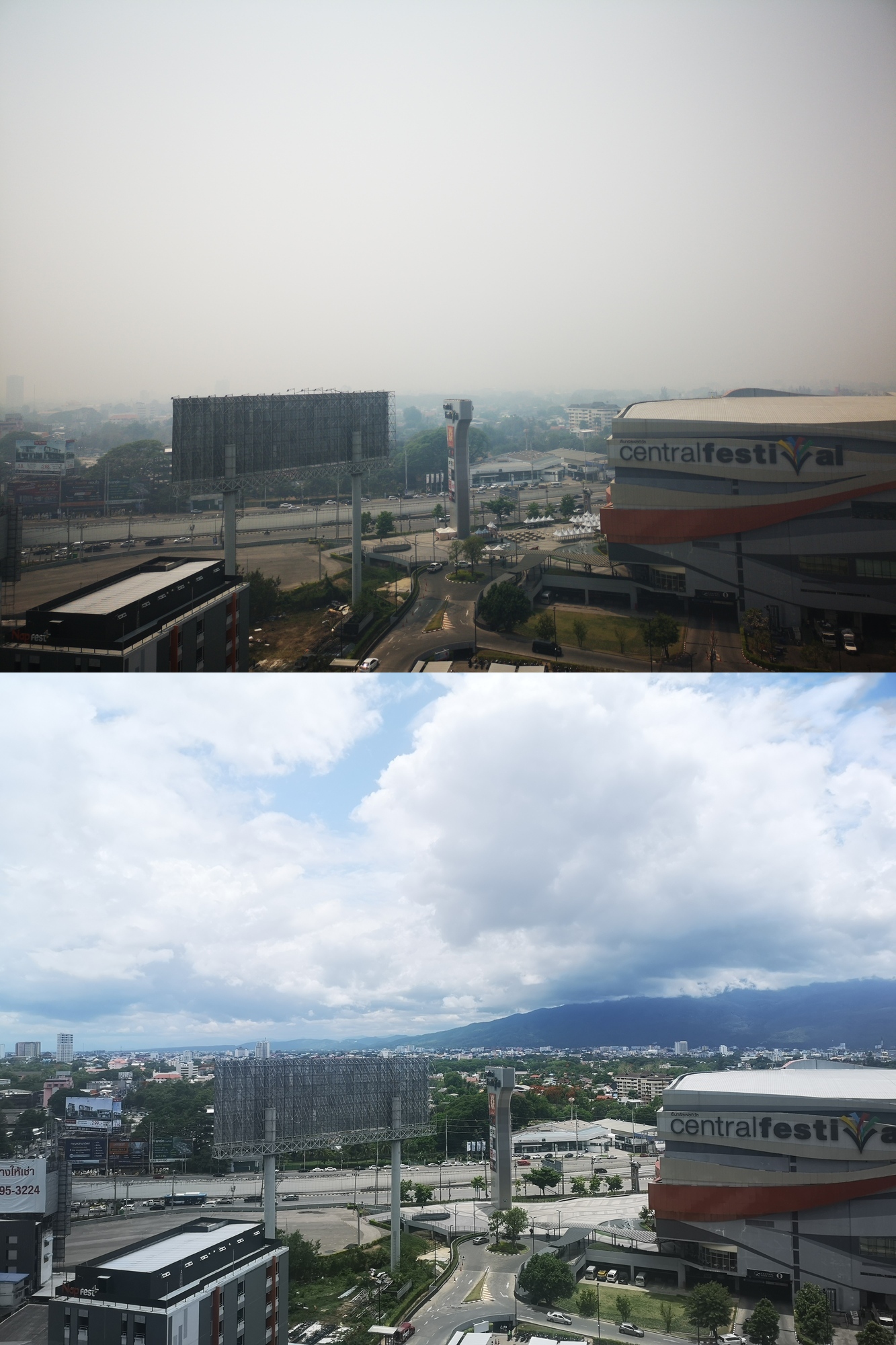I've been living in Chiang Mai - biggest city in North Thailand - for over one year now. I did a lot during this year and experienced many things. The food is great, the housing is cool and the language is complicated. Let me tell you all about it!
Visa And Getting Here
Getting to Chiang Mai is dead easy - take a flight to Bangkok and then another one straight to Chiang Mai! There are flights almost every hour and are surprisingly cheap. The flight from Europe (e.g. Riga) - Bangkok is around 350€ + Bangkok - Chiang Mai 50€ = ~400€.
For Visa it's a bit more complicated. There are several types of visa but the most interesting ones:
Tourist Visa
Anyone can get this visa. You can either get 30 days on arrival visa or submit your passport with ~50€ and get a 60 days visa with a possibility of 30 days extension for another ~50€.
There's one thing to note though. For tourist visa you need:
- Onwards Ticket - some transportation ticket out of the country
- Financial Proof - that you have some money (bank statement or cash)
- Hotel Reservation/Address - this one is rather weird as you can just enter random hotel address.

I've started with this visa one year ago by taking my passport to Thai embassy in Hanoi and getting it back with a visa next day -> easy peasy!
Education Visa
This is visa you can get by applying to study something. This can be almost anything but usually it's either Thai language or self-defense training like Thai boxing (Muai-Thai).
This is actually very cool idea as it setup this little education infrastructure for foreigners. You can stay here as long as you study something of ours! Pretty awesome!
There are either proper schools or "visa farms" that really don't do any real teaching and only provide you documents to get your visa.
The great bit about student visas that they are kinda "eternal" (some suggest that after 3-4 years you might start to be dnied) - as long as you are studying you can extend your visa for 90 days for ~50€. It only takes few hours of your day to get it done and you're set!
Getting My Education Visa
I've picked up the best rated school in Chiang Mai called Mana Thai School, dropped ~750€ for a yearly course which involved 2 hour lessons 4-times a week and found out a rather bizarre initial process.
With school contract in hand and tourist visa in my passport I found out that to acquire student visa I need to leave Thailand and apply for it in Thai embassy - here started my unexpected travel to Laos!
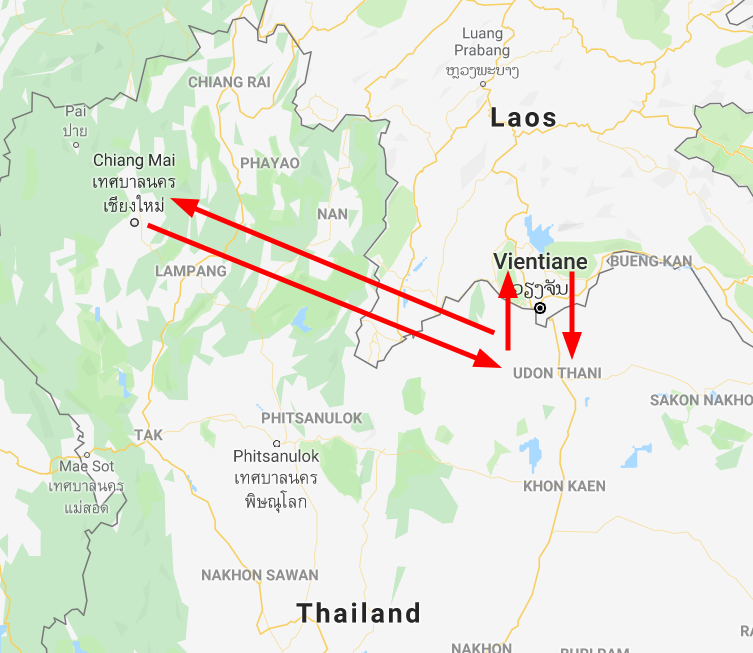
This is called visa run - you leave the country to apply for a new tourist/education visa. The most common one is going to Thai embassy in capital of Laos - Vientianne and it's awkward, stressful and surprisingly expensive journey.
It took me two flights, couple of bus rides and one expensive taxi ride to not miss my flight back. I also got ripped off at the border by being required to buy visa because the workers didn't know what Lithuania was.
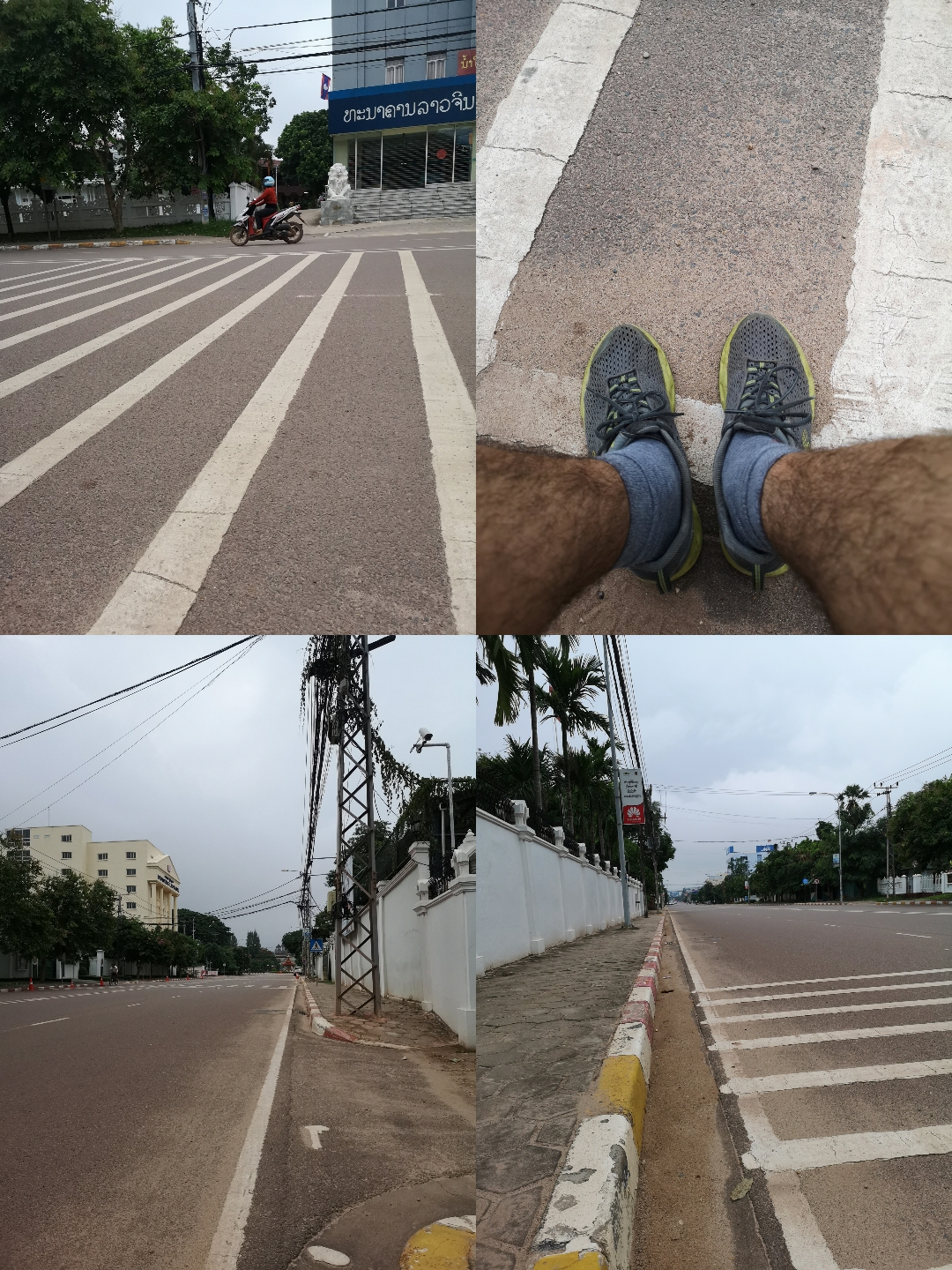
Finally I went to the wrong embassy early in the morning, so when I finally got to the real one I spent 8 or so hours in a queue to get my passport and request to study submitted.
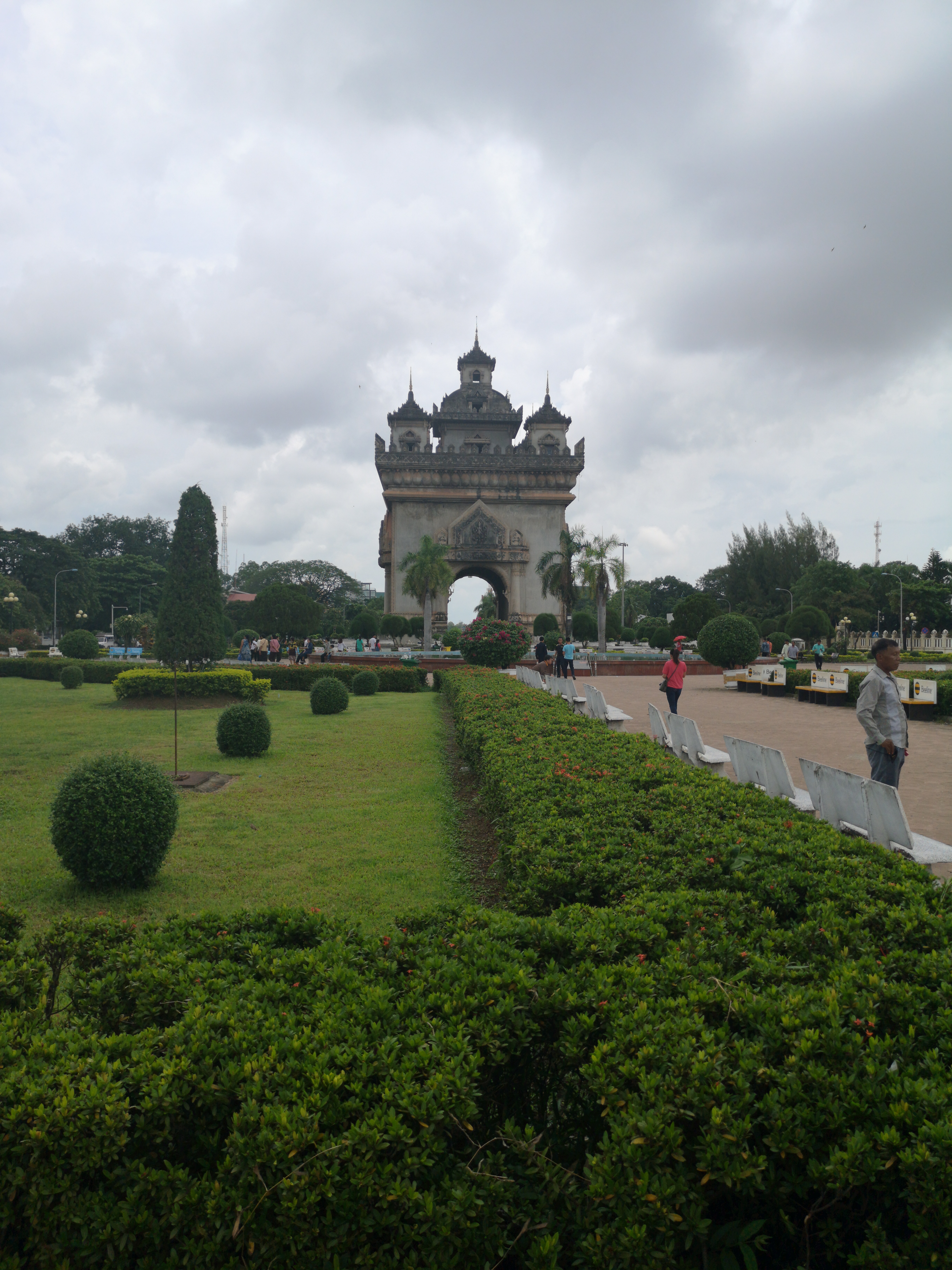
For the rest of the day I explored Vientiane which was quite tiny but cosy. It's was a pleasant mix of Thailand and Vietnam but not as exciting, busy or captivating like either. After exploring Pagodas, historic buildings, parks and markets I had enough but I'd definitely would come back to spend there a week or so.
Studying Thai
I've spent almost a whole year learning Thai and it was quite fun. Thai is a very unusual language for my background - it's my first tonal language and it's quite a barrier!
I've been studying 2 hours a day for 4 days a week in a group of 5-10 people at Manna Thai School. The first two months we learned just plain talking and some writing in latin'ish alphabet - it was great fun. After writing and reading started and things got much more complicated quickly.
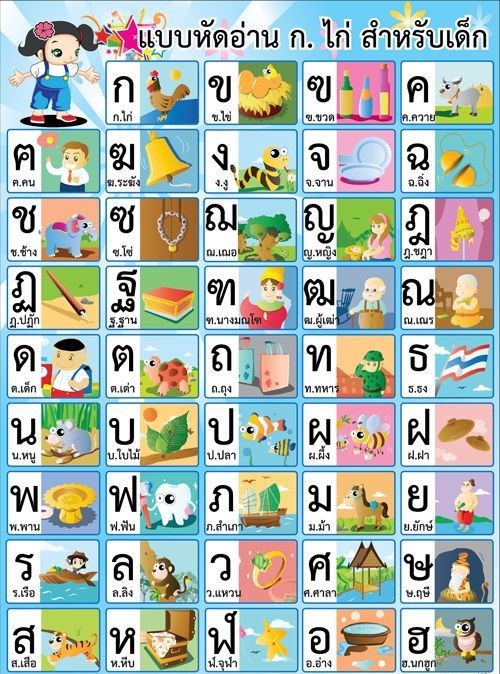
Thai writing system is very unique and fun but also very dated and filled with old rules, exceptions and dead letters. Some interesting facts about Thai language:
- Thai language is a tonal language and has 4 different tones, which means your tone can be the difference between a horse or a dog or between number two and a brothel. Tones are really hard to as rules are complicated and even most native thai speakers don't know them and just talk by ear.
- There are 46 consonant letters in Thai but only 21 consonant sounds, which means you have multiple letters for same consonant and they are not interchangeable, i.e. you have to use correct letter T (there are 6 T letters) from in word Turtle or you might end up writing something else entirely.
- There are dead letters that are either completely dead or used in very few words.
- Thai vowels can go in any direction: left, right, up, bottom! Unlike most languages that simple go from left to right in order thai is very peculiar and instead you write consonant and attach 1 of many different vowels that have fixed location around the consonant (e.g. long U goes under a consonant while short a goes above it)
- There are no spaces between words in written thai which makes reading as a beginner really difficult.
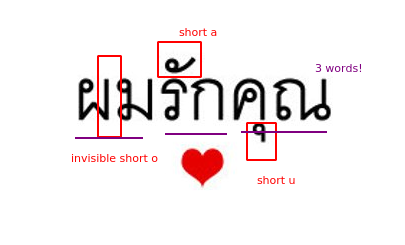
All that being said it's a fun language and I enjoy learning it, it's just not a very good one and definitely in need of some reforms. Neighbouring countries of Laos and Myanmar use similar languages with few reforms and they are known to be much more sane.
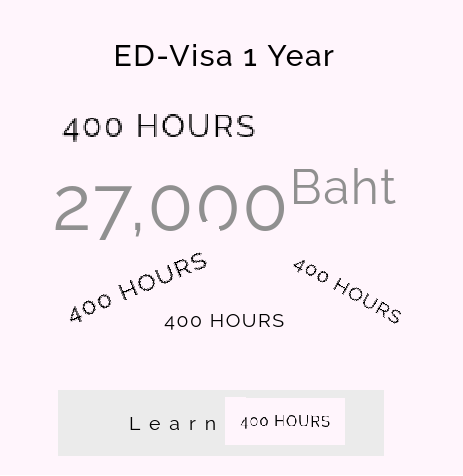
On paper I did 400 hours of classes but I'll be honest - I've been skipping a few classes. That being said I got quite a bit done. I'm quite satisfied with my current elementary-school level writing/reading and some basic talking/listening. I think I can pick it up to a rather fluent level in another year. according to FSI source to acquire basic fluency in Thai you need around 720 hours. So I'm trying not to beat myself up too much.
Main problem is actually practicing Thai. It's surprisingly difficult to immerse yourself in the language if you don't actively put effort into it. I've been working on extending this with some training apps and tv shows on Netflix.
Overall Thai language is fun and I'm glad I picked it up. It's unusual writing system, tonal pronunciation and word order is a great mind exercise!
I'm in the works of writing a blog about all thai language learning tools I've tried, there are few good ones!
Lodging
In this year I lived in three different condos and all of them were great value! The quality condo pricing ranges from 270 - 550€. If you want nice location, pool, gym, rec space(like library or park) and a bit more space then 500€ with a yearly contract is a fair number - and that's an absolute steal!
All three condos I lived in all had pools, great staff, security and great location!
- Prompt Condo - had great location was cosy but not very luxurious - 420€/month. It has a cosy pool on ground floor and a little gym right above it. No shared space like library or a garden though.
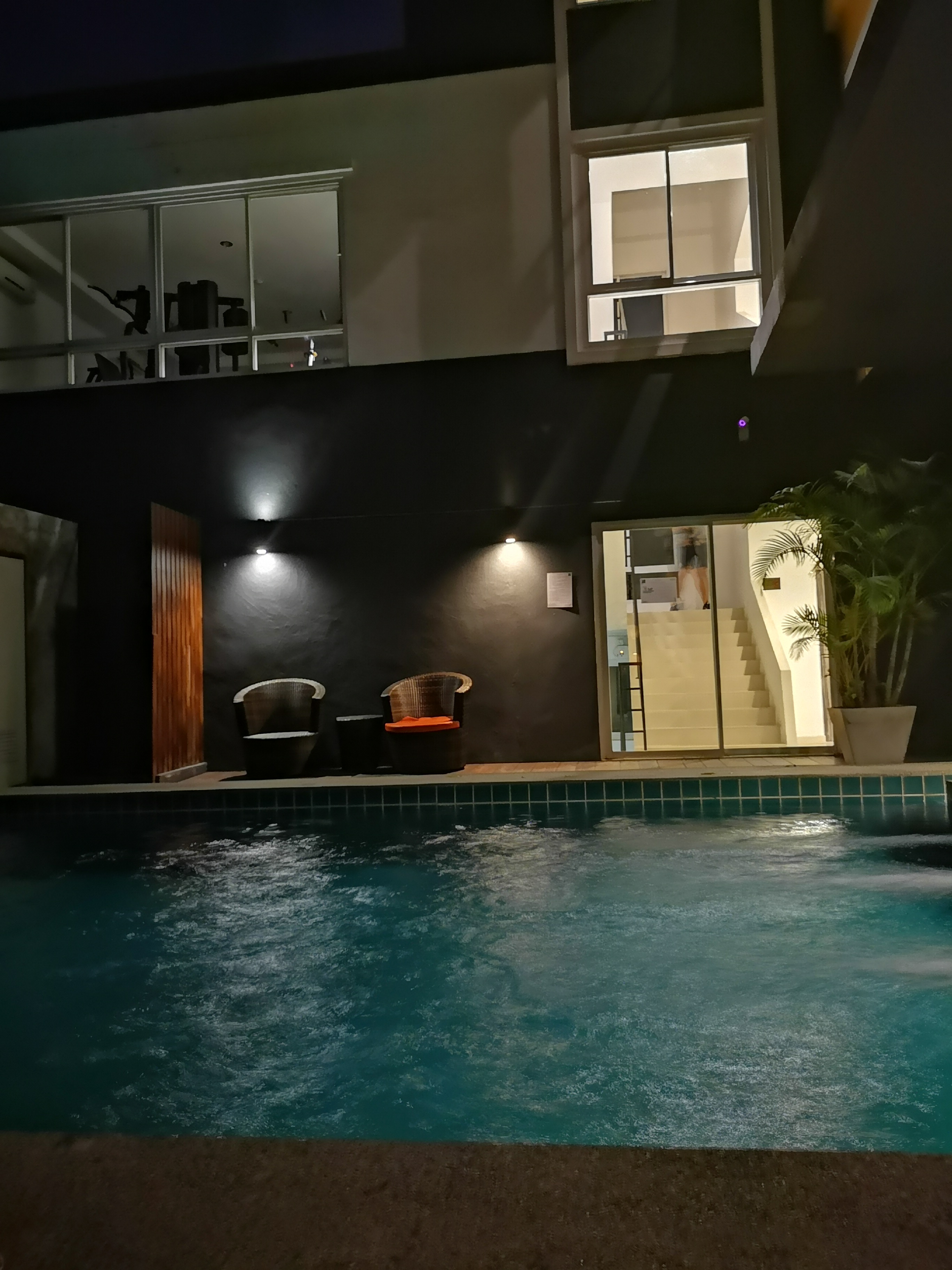
- Play Condo - my favorite experience in Chiang Mai. It's not very big but the staff was always helpful, the room for 560€ was pretty huge (50m² or so) and the rooftop pool and library is a real pleasure. The location was close to perfect too - across the street of night market and a super mall.
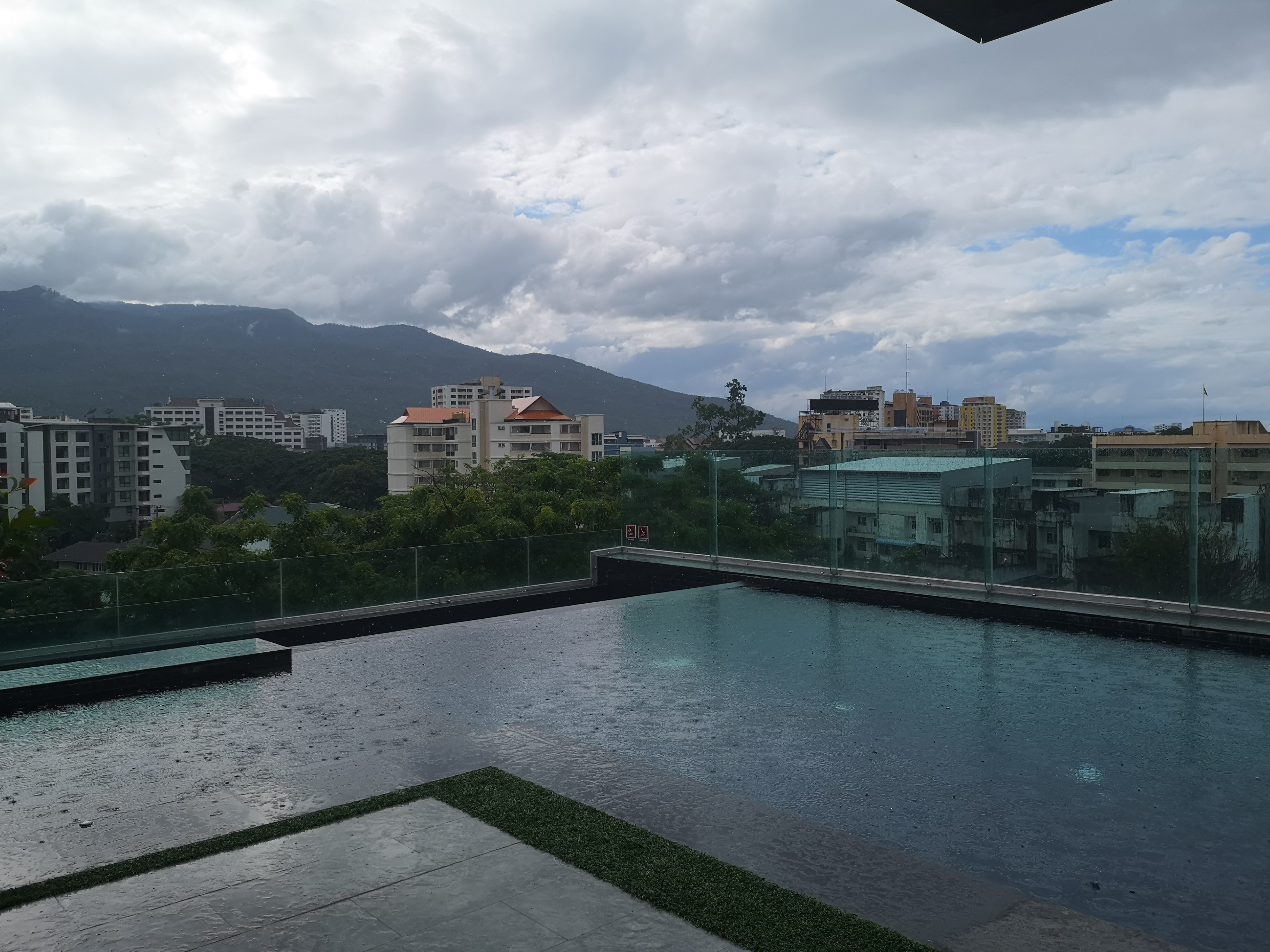
- Escent Condo - I had to move to a different town area and found this new condo that is 26 stories high and is pretty much empty. For 460€ you get around 40m² of living space with nice view plus a rooftop pool/sauna, libary and gym. It's right next to huge super mall and few local markets too. The only down-side is that it's a bit far from a city center.
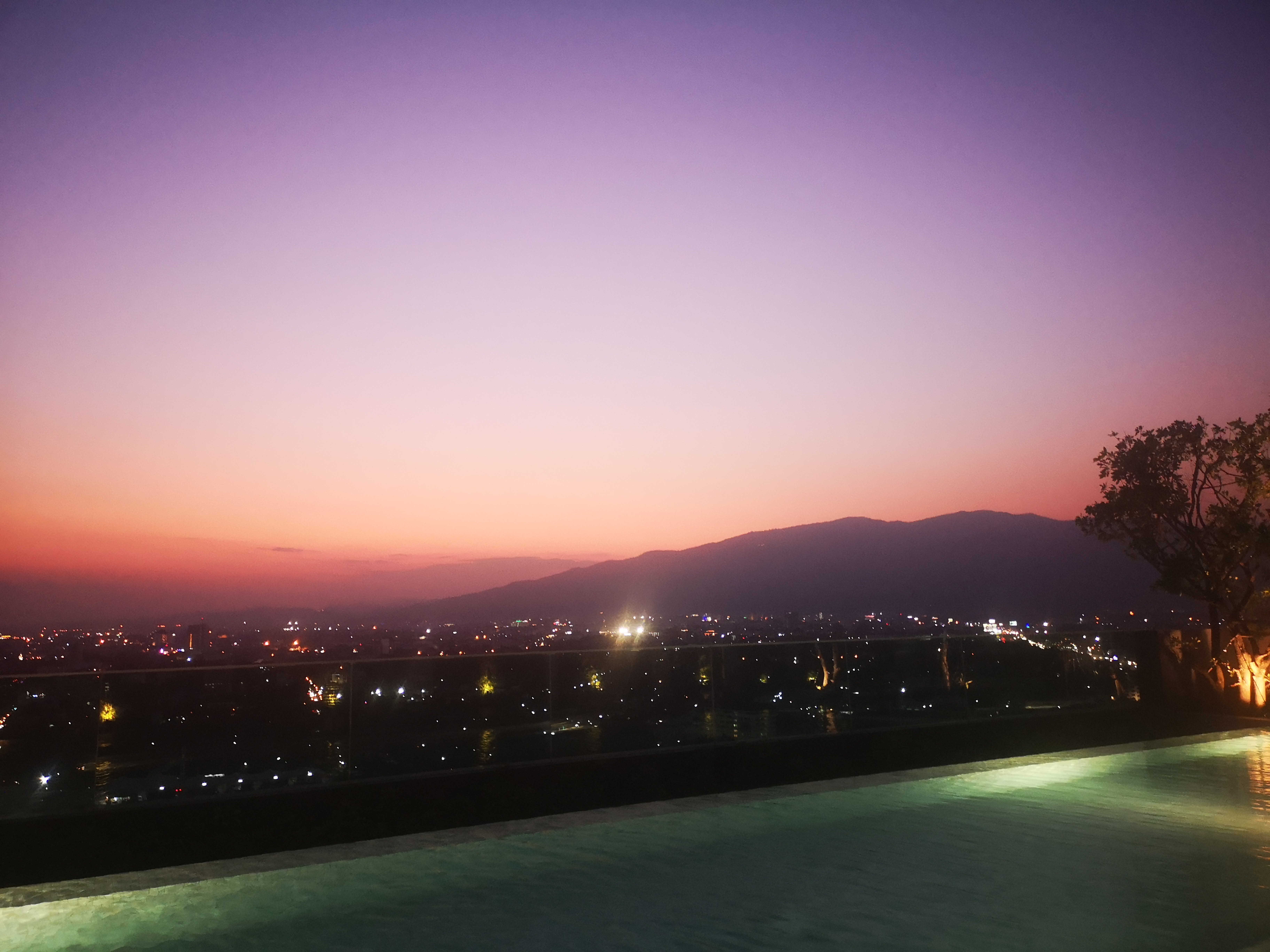
I found the condominium infrastructure very impressive and enjoyable. I'd have trouble going back to european style flats and for this price it's worth staying here just for the housing!
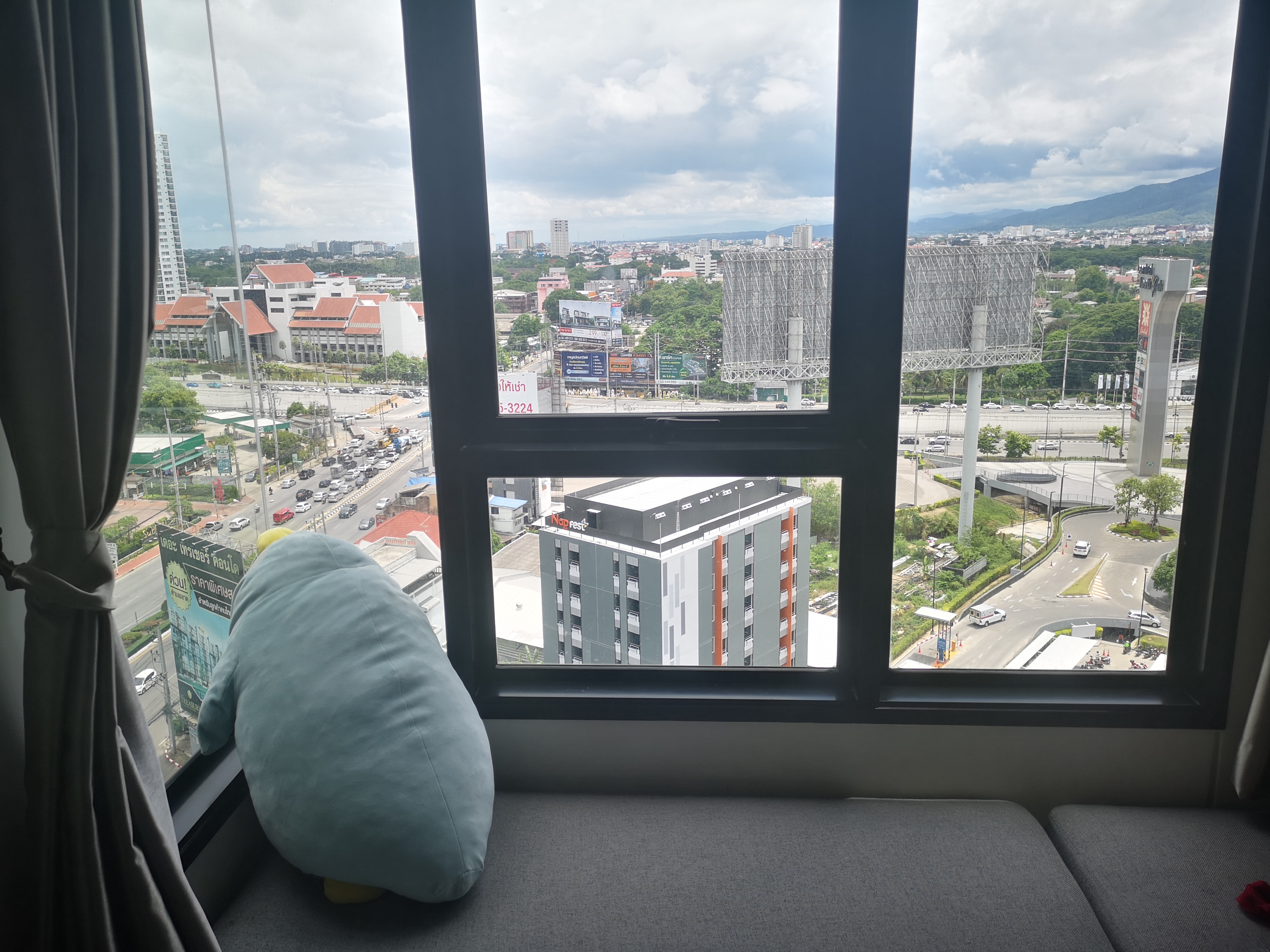
The general cost is very affordable. You can find similar condos in 300€ range too if you're more flexible with location. It's worth noting that electricity bills can add up really fast so you should add 30€ or so for air-conditioning alone!
Food
This segment probably deserves a blog post of it's own but to put it shortly thai food is great and surprisingly supportive of vegetarian diet, though egg is very prevalent so vegan diet is a bit harder.
Thai food is very rich in taste, be it salty, sweet or sour. It's relative healthy too - maybe a bit heavy on saturated fats (oil) and carbs (rice) but if you can pay a bit attention you can have a very healthy vegetarian diet without much effort!
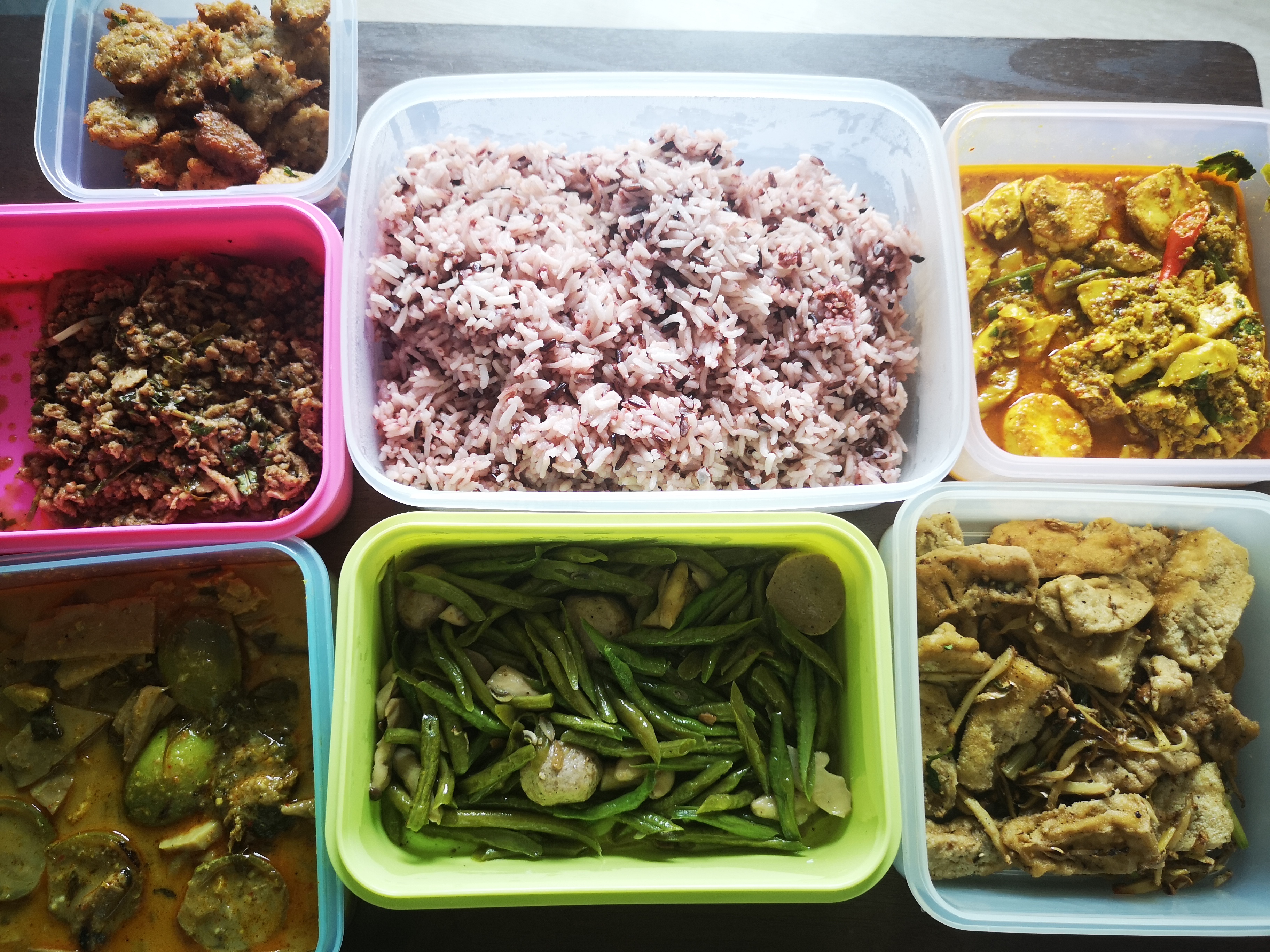
The biggest appeal is sheer value. I often take a backpack full of plastic containers and fill them up with various dishes at a local vegetarian restaurant. For 8€ and can eat quality, delicious and somewhat healthy food for 2-3 days! The best part is that it saves a bunch of time too!
Lastly being vegetarian in Thailand isn't hard at all but some effort is required. Thai people really like to eat meat so they tend to mix some meat into every dish which is hard to avoid unless you can communicate with staff to adjust the dish for you which they don't mind doing. The word for vegetarian is เจ (pronounced jėė) which stand for buddhist vegetarian diet.
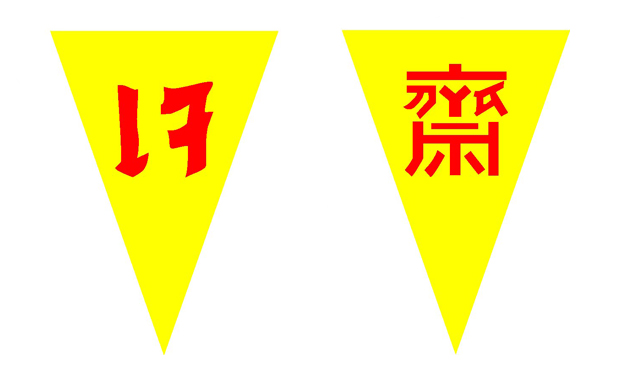
The easiest way to find some delicious, cheap vegetarian food is looking for this word (usually in yellow background) around Temples - the restaurants/cafeterias serve the best vegetarian thai food there!
Produce
Vegetables and fruits in Chiang Mai are highly seasonal, though mostly by price and quality not by availability. There are two seasons in Thailand - wet and dry but for plants it's a bit more complicated. There are these, as I'd describe, "surge" months where specific vegetable or fruit is really kicking off and you can just drown yourself in it. As of writing of this blog the Lichee season is starting and thai lichee are absolutely delicious!
![Produce stalls are everywhere! [1]](/images/thai-market.jpg)
The local markets (which are everywhere) offer a lot of quality produce for pennies - especially if you go out a bit out of town or go to wholesale markets. Some produce is a bit harder to get by at times but can be found at bigger markets or at some import shop.
One of my favorite produce related experience is that often local alleys have small stalls of good quality produce, so if you're in a sudden need you can just pop down from your condo and grab some carrots or whatever you're missing for that delicious soup your cooking!
For other favorite experiences here's few of my favorite produce from top of my head:
- Mango - green mango is pleasantly sour and great snack dipped in sauce or spice mixes, while yellow mango is perfect sweetness on it's own.
- Baby mango - it's just young green mango but you can eat them like apples, they are quite sour and very refreshing. Usually people eat them with sweet tamarind sauce.
- Lychee/Longan - there are many kinds, some sweeter some less so but all of them are delicious and super cheap when in season!
- Guava - apple of thailand. Packs more vitamin c than a lemon!
- Pineapple - Chiang Rai (a town north of CM) is probably the world capital of pineapples. There are so many kinds and many different tastes! The baby ones are especially delicious as they lack of protein that burns your mouth.
- Mangosteen - these little guys just melt your mouth! They are quite seasonal and difficult to peel but are absolutely worth it!
- Salads - if you're into salads CM got you covered, I'm eating Red Coral almost daily! There are also many salad bars and make your own salad restaurants like Okaju and Salad Concept where you can get bowl of delicious, dressed salad for 2€!
- Eggplants - there are lot of different eggplants and they're all delicious. If you know your way around a kitchen you can really go wild with these guys!
- Berries - there aren't many berries in Thailand but few that do exist are extremely delicious. Mulberries and Cape Gooseberries are to die for! Unfortunately just like everywhere berries here are highly seasonal too.
- Mushrooms - there are many different mushrooms in varying tastes but all of them are delicious! My favorites are just sauted or fried with butter and chilly powder. Eringi mushroom is my daily protein driver!
Another absolutely delicious use of produce is pickling. You can find almost pickled anything - mango, tamarind, grapes and all sorts of plume-like tiny little fruits I don't even know the name of!
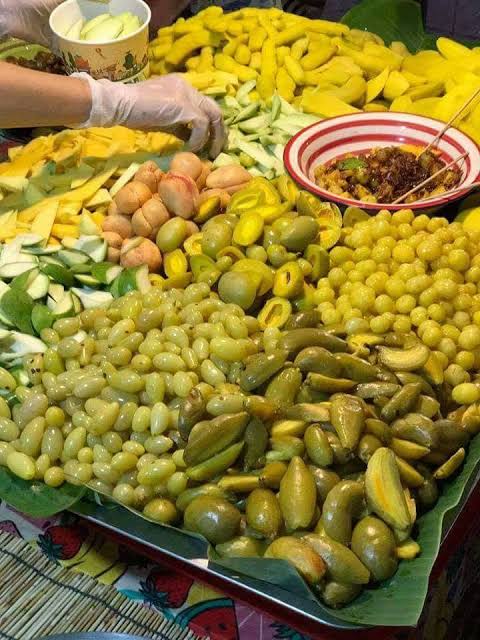
All that beings said some produce is surprisingly disappointing. Tomato is my favourite fruit and thai tomatoes aren't great, they are never proper ripe and aren't as watery as imported ones. Another disappointing thing is serious lack of canned legumes, beans etc. - it's awfully expensive and not as great as you would get back in europe.
Weeds/leafs/flowers
There are so many little obscure plants that Thai like to deep or stir fry or mix in some curry. I could hardly do it justice in this small section but variety is truly astonishing.
If you take a thai cook to a local jungle and ask them to start pointing at edible plants you'd be surprised to see them turn into a helicopter.
Stir fry pan is probably the ultimate survival tool for thai outdoors.
The most basic but absolutely delicious dish is simple omelet, mixed in with some of these obscurities eaten with some chilly sauce and rice. It's has been an easy breakfast/lunch for when you want some heavy food - pop in to veggie stall at your alley to get some plants and sticky rice, toss the plants in an omelet and combined that with some sauce and sticky rice you have a carb and fat rich, delicious, and most importantly - lazy, lunch!
Another one of my favorite dishes called Nam Niau is a soup made with dried flower called Niau, literal dish translation water Niau and it's delicious! usually combined with rice noodles, tomatoes and some extras like liver or in vegetarian versions mushrooms.
![Niau flower soup is different everywhere I tried but the core soup is always as delicious as you expect it! [1]](/images/thai-nam-niau.jpg)
Coffee and Tea
Thailand is full of Tea and Coffee plantations and they grow some of the most delicious stuff in the world! Not only that but these plantations tend to be a fun place to visit and often have a little place to get some dinner with a view.
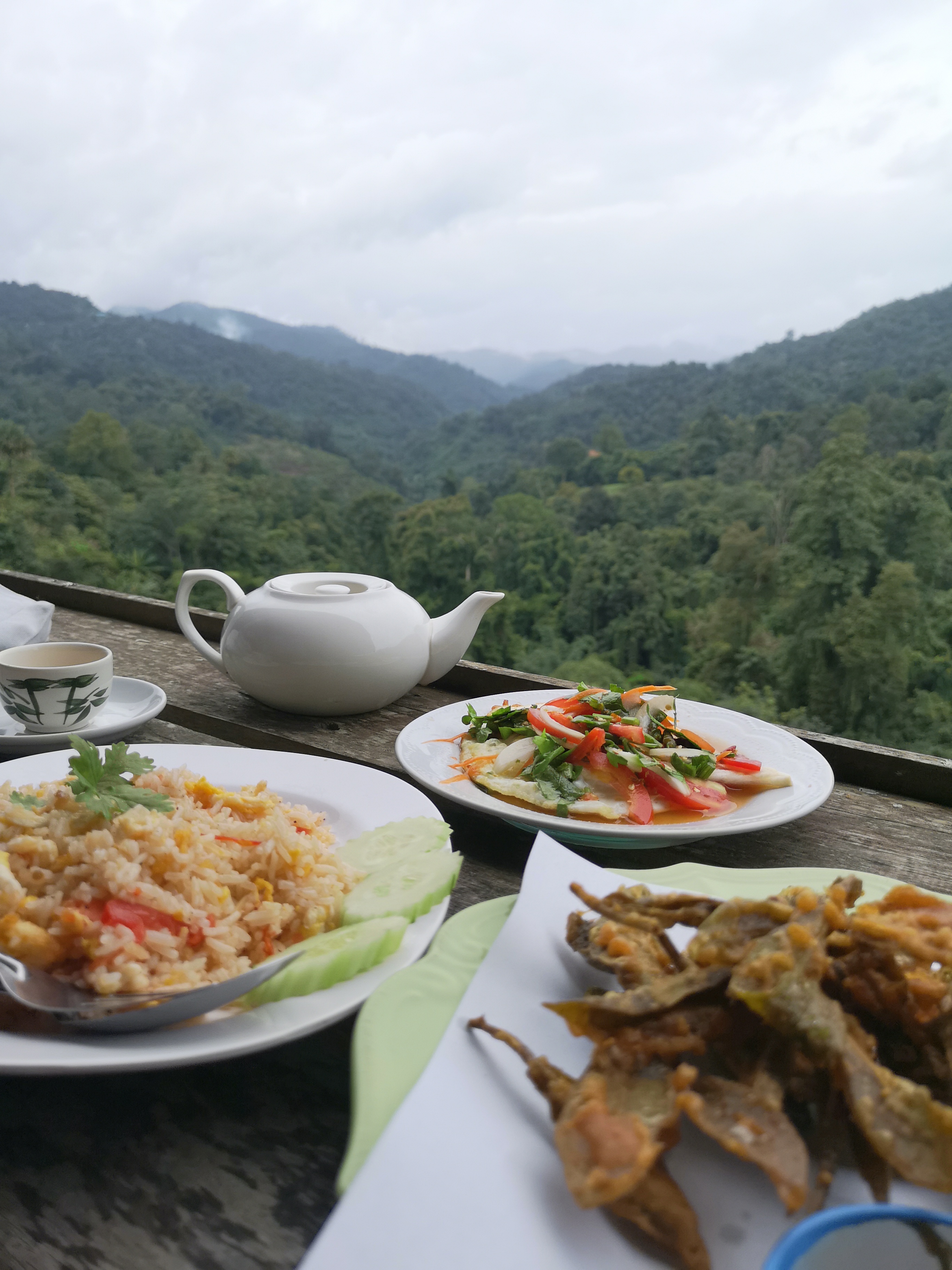
Thailand really shines in this regard, some of the best Arabica coffee in the world can be found here in North Thailand. The mountains are just tall and accommodating enough to produce great quality beans that are further roasted and taken care of families and hill tribes that have been doing this for generations.
The coffee is really cheap too if avoid the tourist brands. A 500g pack high quality arabica from a hill tribe (you can even find some in nearby super market) will only cost you 3€!
The cafè scene in Chiang Mai is very healthy too. There are a lot of little coffee shops sprinkled around even at the most remote corners of the country. All serving good, delicious coffee 1-3€ and often provide an either themed or cosy to sit down to drink it.
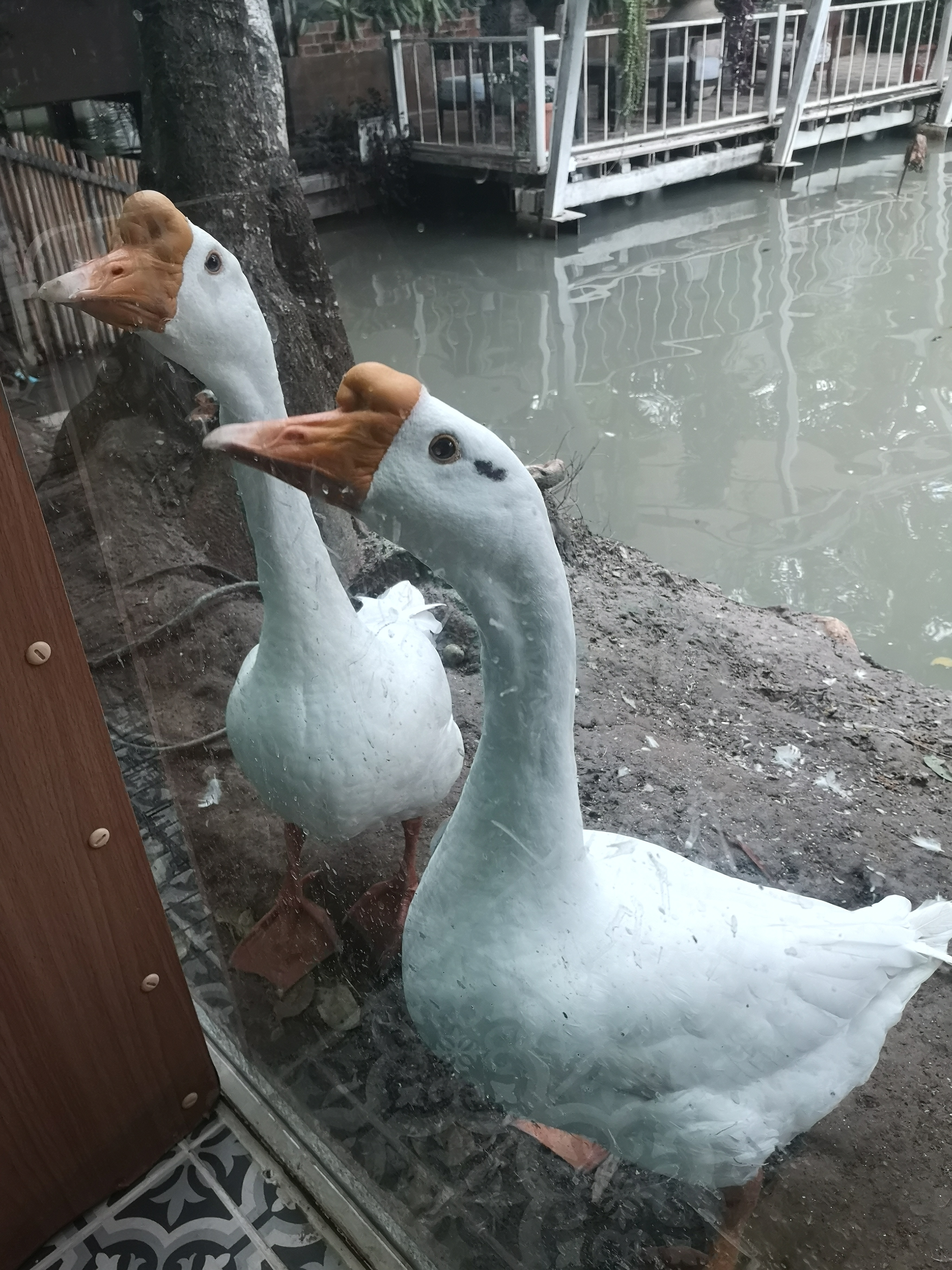
Since I work remotely I often do that from a café. The best cafes in my experience are located towards Doi Suthep mountain, so if you enjoy café hoping that's the direction you should aim at.
The Smog
So far most of the things I said about Chiang Mai were very much positive. It's absolutely true - Chiang Mai is wonderful for the bigger part of the year but starting around January burning season starts and goes on until late May. It's terrible.
It's ugly, but not only that it's just awfully unhealthy and the smog has a very unpleasant smell which makes any outdoors activity really unpleasant. Burning season is also high season with more tourists coming from cold countries to enjoy Thai sunshine - means prices are often higher and the town is packed more than usual.
Combined these two things I couldn't recommend anyone coming to Chiang Mai during the burning season, in fact I'd recommend leaving it for South Thailand or neighbouring countries.
That being said some few people are absolute fine with it so personal tolerance definitely plays a role here.
Leisure Time and Conclusions
There are a lot of things to do in Chiang Mai, most of it involves the beautiful nature of North Thailand but there's good amount of entertainment too. Chiang Mai has many shopping malls that provides relatively cheap and enjoyable shopping experience, there are some activities and events happening every week. There's a healthy music scene and a sizable expat community for various activities ranging from board-game evenings to book and yoga clubs.
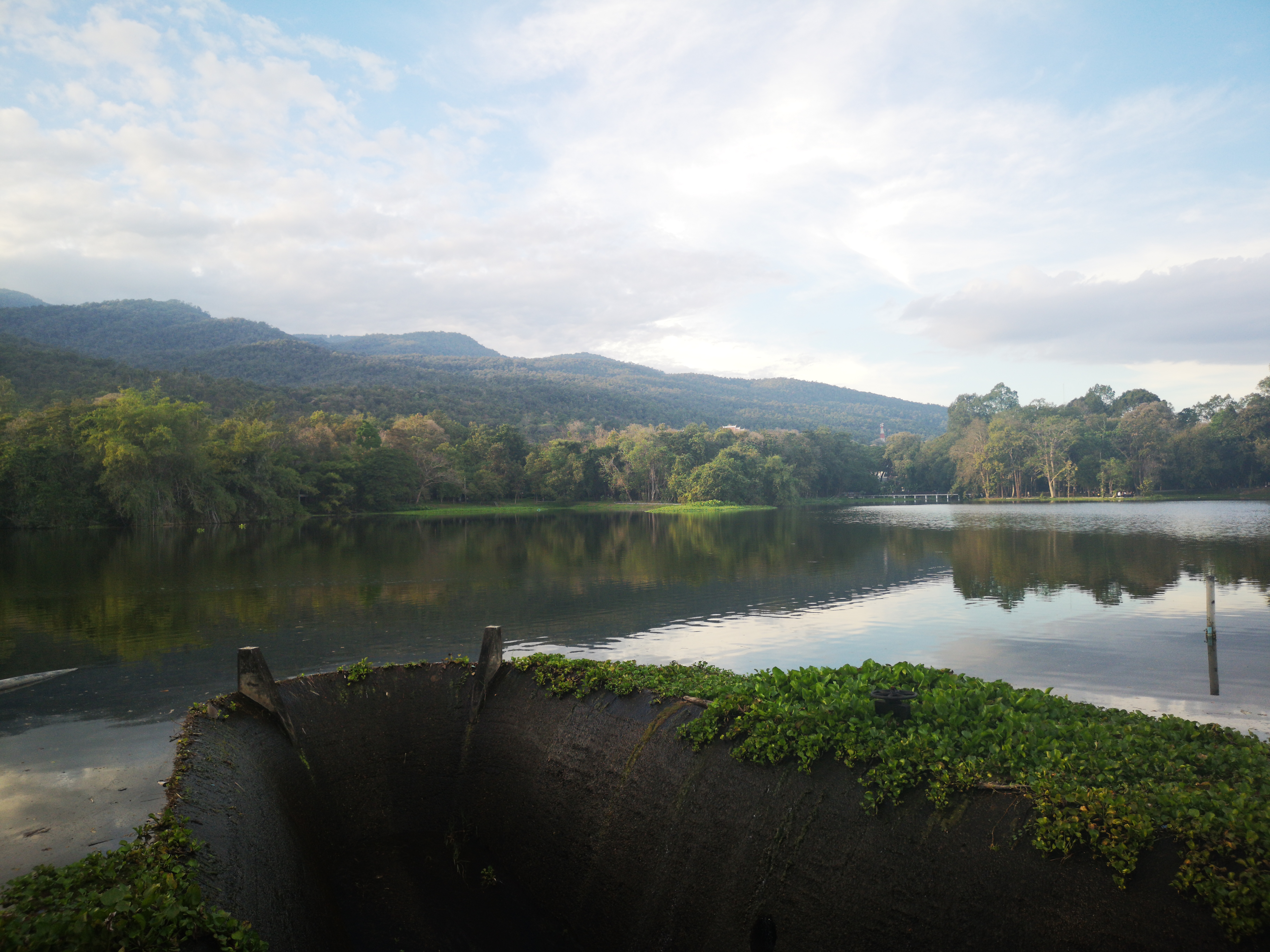
To summarise Chiang Mai is a really fun, affordable and cosy town. The housing is amazing so is the food and nature. It's a great place to live in for 8/12 months and you really have to hermit your way through the 4 months of burning season (or ideally leave) but this can be planned around.
The year I spent here was really enjoyable with the exception of burning season. I really enjoy North Thailand nature and there's always some new place to explore. I got driver license, scooter and a car which I believe are vital to truly enjoy the exploration and nature aspect of the area (maybe you could do without a car but with big bike instead).
I plan to stay here longer so there are many more blogpost to come! I plan to cover some subjects like expenses, food and my favorite activities in greater detail.
For more Chiang My photos check out my pixelfed feed.
Credits and attributions
1 - https://commons.wikimedia.org/wiki/User:Takeaway
